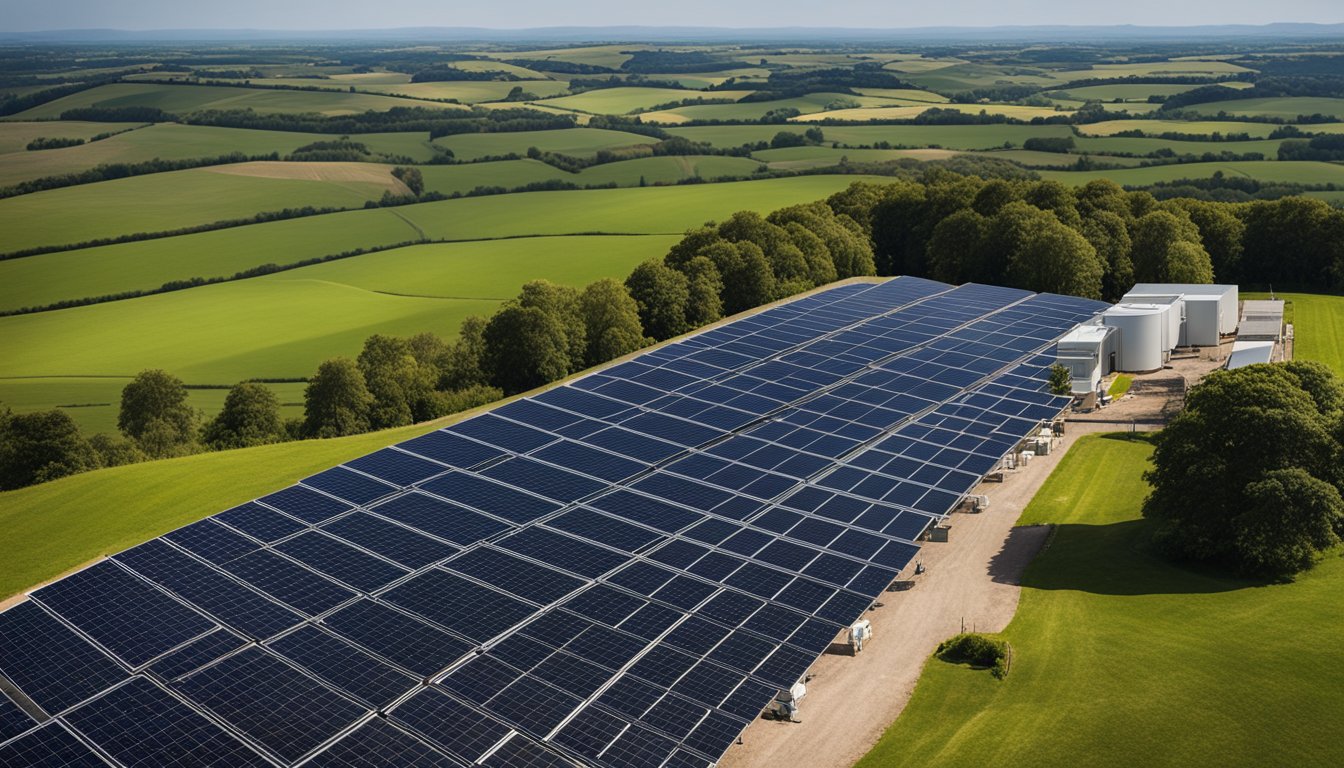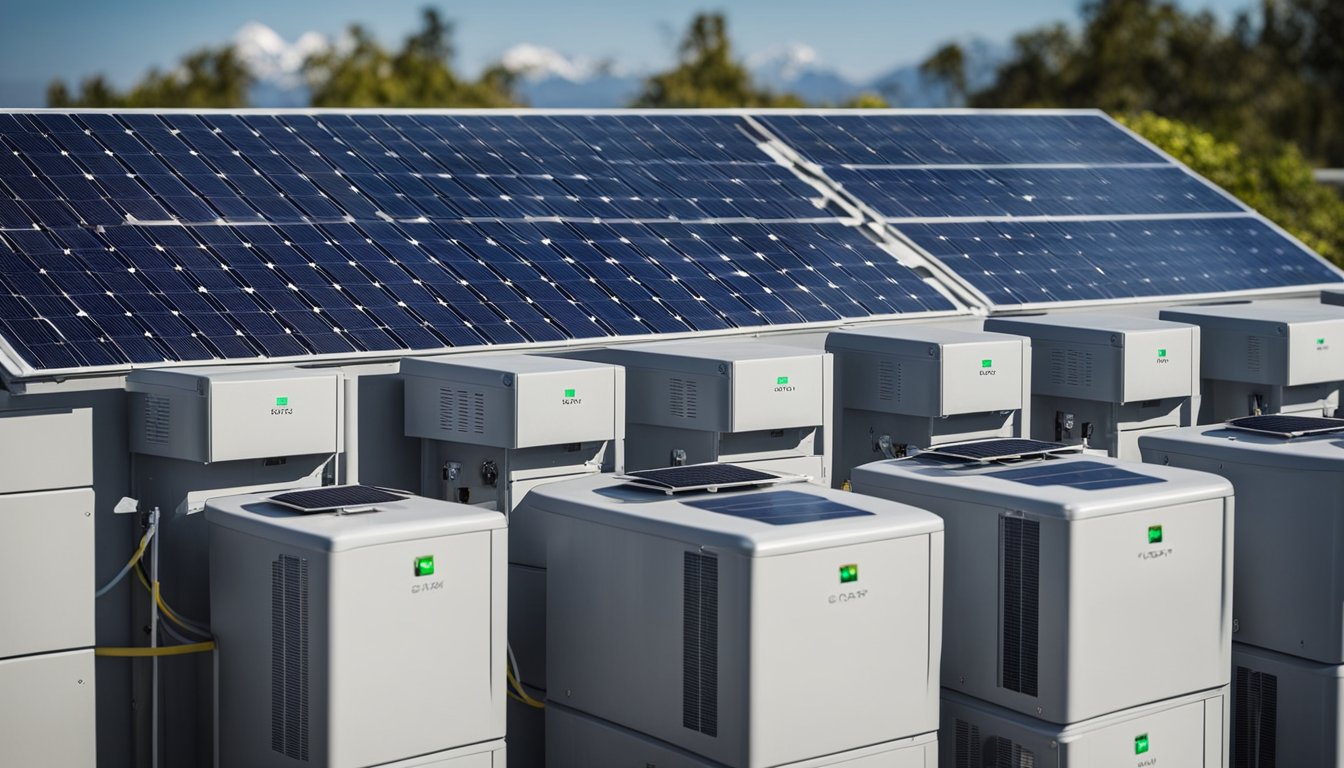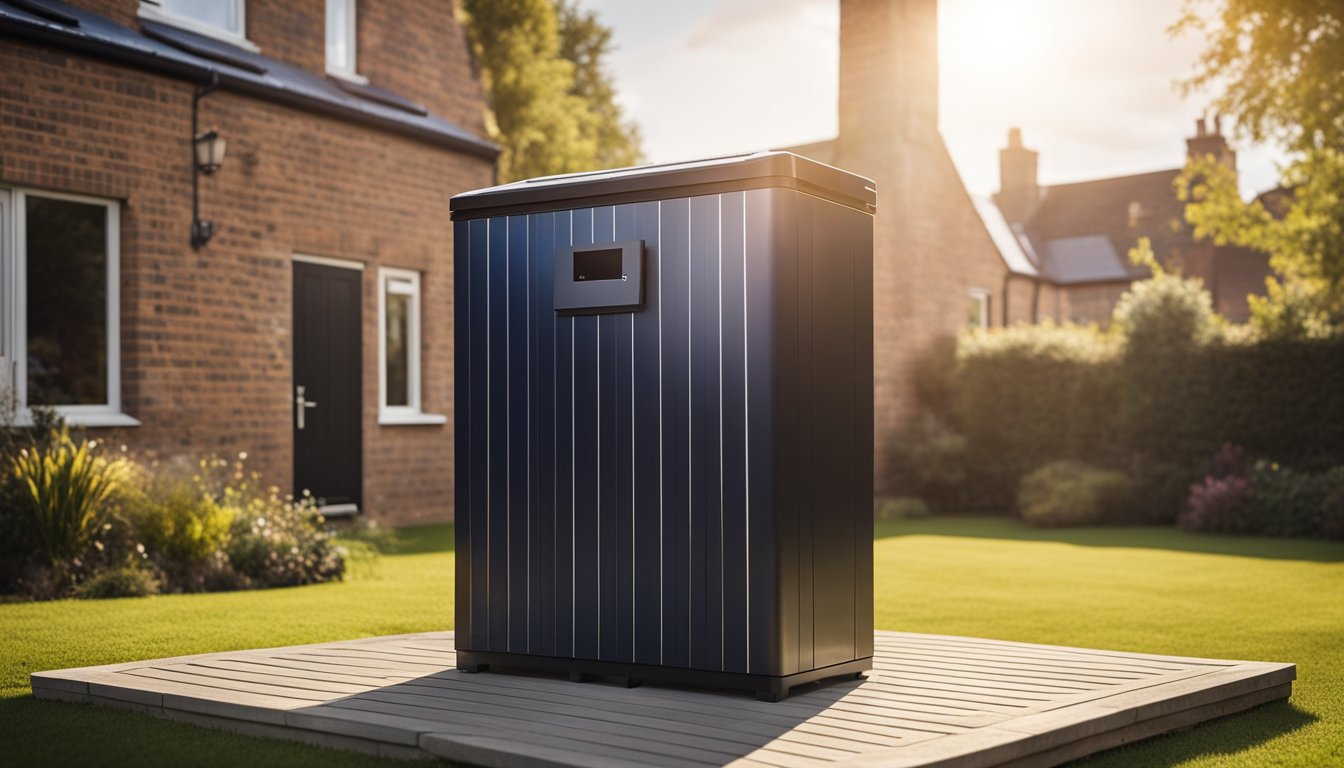Late updated: 17 Aug 2024 08:08
Written by: Eleanor Hartman
Solar Battery Storage Key To Energy Independence In The UK: A Crucial Step Toward Sustainability
Achieving energy independence in the UK has become increasingly attainable with the advent of solar battery storage solutions. As we stand on the brink of a renewable energy revolution, integrating solar panels with battery storage systems emerges as a pivotal step. Solar battery storage not only reduces our reliance on the national grid but also ensures a reliable backup during power shortages.

Solar energy, harnessed through photovoltaic (PV) systems, has gained significant traction in recent years. By storing excess energy produced during peak sunlight hours, we can utilise this stored power during evenings or overcast days. This translation from intermittent renewable energy to a stable, on-demand power source is a cornerstone of our path to energy autonomy.
The benefits and considerations of adopting solar battery storage are multifaceted. While the initial investment might be substantial, the long-term gains in terms of reduced electricity bills and sustainability are compelling. As we explore this topic further, we'll dissect the key factors, potential savings, and frequently asked questions that surround this exciting technology.
Key Takeaways
- Solar battery storage helps reduce reliance on the national grid.
- Stored solar energy provides a reliable backup during power shortages.
- Initial costs are balanced by long-term savings and sustainability.
Fundamentals of Solar Battery Storage
Solar battery storage is vital for harnessing and optimising solar energy. By storing excess electricity generated by solar panels, households and businesses can ensure a continuous power supply, especially during cloudy days or at night.
Understanding Solar Batteries and Their Role
Solar batteries store the electricity produced by solar panels for later use. Their primary function is to provide energy independence by reducing reliance on the national grid. During the day, when solar panels generate more electricity than is immediately needed, the excess energy is stored in the battery. This stored energy can be used during the night or when solar generation is low.
Types of Solar Batteries
There are several types of solar batteries, each with specific characteristics:
- Lithium-Ion Batteries: Known for high energy density and efficiency. They have a long lifespan and higher Depth of Discharge (DoD). Commonly used in residential solar systems.
- Lead-Acid Batteries: Traditional and cheaper, but have a lower energy density and shorter lifespan. Typically used for off-grid applications.
- Flow Batteries: Offer a long lifespan and can be discharged deeply without damaging the battery. However, they are usually more expensive and suitable for larger installations.
Assessing Your Energy Needs and Storage Capacity
Determining the appropriate energy storage capacity involves assessing energy consumption and solar generation. We consider factors such as power rating (measured in kilowatts) and energy storage capacity (measured in kilowatt-hours). A home with high energy needs may require a battery with a larger capacity. Tools like energy audits can help estimate these requirements precisely.
Solar Battery Installation: The Essentials
Proper installation is key to maximising the efficiency of solar battery storage systems. Essential components include:
- Inverter: Converts DC from solar panels into usable AC electricity.
- Charge Controller: Regulates the power going into the battery and prevents overcharging.
- Mounting Systems: Secure the battery and other hardware safely.
Qualified professionals should handle the installation to ensure safety and compliance with local regulations. Integration with existing solar PV panels and the grid should be seamless to optimise performance.
Maximising Benefits and Mitigating Costs

Investing in solar battery storage provides numerous financial and environmental benefits. To maximise these benefits and mitigate costs, households should consider financial incentives, weigh pros and cons, and focus on long-term savings through maintenance and warranty plans.
Financial Incentives and Grants
There are various financial incentives and grants available that can significantly reduce initial investment costs for solar battery storage. For instance, Home Energy Scotland and the Energy Saving Trust offer grants and loans to support renewable energy installations. Additionally, the Smart Export Guarantee (SEG) allows us to sell excess energy back to the grid, providing further cost savings.
We should also explore 0% VAT opportunities on solar panel and battery installations, which can reduce upfront costs. Access to free quotes from certified installers is essential to compare prices and identify the best deals.
Weighing the Pros and Cons
We need to carefully consider both benefits and drawbacks. On the one hand, solar batteries enable us to store excess energy, increase self-consumption, and reduce reliance on the grid. This translates to lower energy bills, especially during peak electricity prices, and adds value during power cuts.
On the other hand, the installation costs can be considerable. While we expect long-term savings, the initial outlay may deter some households. Additionally, battery capacity plays a crucial role; choosing a larger system increases costs but provides greater savings and energy efficiency in the long run.
Maintenance and Warranty: Ensuring Long-Term Savings
Regular maintenance and a robust warranty are critical for ensuring long-term savings and efficiency. Most solar batteries come with a warranty that covers 10 to 15 years, which guarantees performance. We should carefully review the warranty details to understand what is covered, including battery replacement and usable capacity over time.
Proper maintenance also involves periodic checks and servicing, which can extend the battery's lifespan and prevent unexpected issues. Partnering with reputable installers who offer comprehensive maintenance plans ensures our investment remains sound and continues to save us money over its lifespan.
By focusing on these factors, we can maximise financial benefits while mitigating costs associated with solar battery storage.
Frequently Asked Questions

Solar battery storage plays a vital role in reducing reliance on the grid and contributing to energy independence in the UK. Below are some of the most common queries regarding solar battery storage and its impact on households, value, and the environment.
How much battery storage is required for a household in the UK?
On average, a typical UK household with solar panels may need a battery storage capacity between 4kWh to 8kWh. This varies based on household energy consumption patterns, number of residents, and typical electricity usage throughout the day. Assessing individual energy needs is crucial for determining the right storage capacity.
Does investing in a solar battery system offer value in the UK?
Yes, investing in a solar battery system can be valuable for UK homeowners. The break-even point for such systems is around 23.95 years for a typical three-bedroom house. The average cost of solar batteries is approximately £4,500, and they can significantly reduce energy bills and reliance on grid electricity.
Which large-scale battery storage project holds the record in the UK?
As of the end of Q4 2023, Great Britain’s grid-scale battery storage capacity stood at a record high of 3.5GW. This notable increase signifies the country's commitment to expanding its battery storage infrastructure to support renewable energy integration and grid reliability.
Which organisations are major players in the UK's BESS industry?
Several organisations are key players in the UK's Battery Energy Storage System (BESS) industry. Companies like E.ON and other energy providers offer integrated solar and battery solutions, while specialised firms continue to innovate in grid-scale energy storage projects. These organisations play critical roles in advancing the UK’s renewable energy capabilities.
How does solar battery storage contribute to energy independence in the UK?
Solar battery storage enables households and businesses to store excess solar energy generated during the day for use at night or during peak periods. This reduces dependency on the national grid, provides greater energy security, and safeguards against fluctuations in energy prices.
What are the environmental benefits of adopting solar battery storage in the UK?
Adopting solar battery storage systems provides significant environmental benefits. They help lower greenhouse gas emissions by maximising the use of renewable solar energy. This reduces the need for fossil fuel-based power plants, contributes to cleaner air, and supports the UK's goals for a sustainable, low-carbon future.